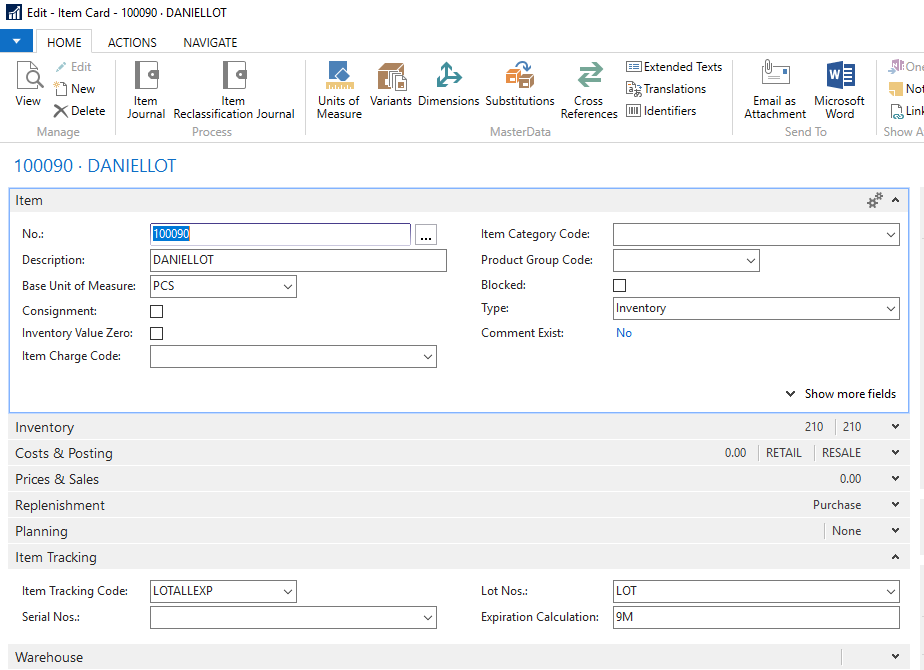...
As an inventory system, "Items" is the basic and the most important part. Please be aware that, part of the fields are the core of an inventory system. Once it is set and items are accessed, no more changes can't be done in the fields. Also it involves a concept management of an inventory system. unit of storing goods. Pleae note some critical information in item cannot be changed after warehouse activity occurred. |
|---|
Operating Procedures |
|---|
1) Search "items" in NAV Press "New" to create new item | |
2) A new interface to create new item , and it includes the category belowshows with the following sections: Item
Item Tracking
| 2) |
3) Open "Retail item" list, and choose the corresponding item 4) Press "Barcode List", Enter the corresponding barcode according to the unit of items Example: Barcode 123456=1 Box ETC.... | 3) 4) 5) |
...





